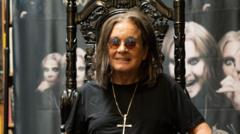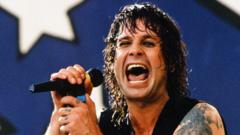Amidst global crises and societal changes, Pope Francis maintained a compassionate approach that challenged norms, leaving an enduring legacy.
Pope Francis: A Legacy of Surprises and Compassion

Pope Francis: A Legacy of Surprises and Compassion
Reflecting on the transformative impact and unexpected leadership style of Pope Francis following his passing.
April 21, 2025, 3:49 p.m. ET
Obituary Photos His Legacy Timeline What Happens Next Potential Successors Advertisement
Cardinal Jorge Mario Bergoglio of Argentina emerged as a transformative figure for the Catholic Church when he was elected as Pope Francis in 2013. Initially overlooked as a candidate in the 2005 conclave, he took the world by surprise, becoming the first pope to adopt the name Francis. Over his twelve-year papacy, he continually embraced unpredictability, balancing his roles between a reformist leader and a steward of traditional Catholic values.
I had the opportunity to closely observe Pope Francis during his time as pontiff, starting from his election day to his recent passing. He engaged with the global community in ways that many found refreshing, focusing on humanitarian issues often ignored, such as the struggles of the Rohingya people in Bangladesh. In a poignant moment, I witnessed him connect personally with these refugees, highlighting his genuine commitment to the marginalized.
Pope Francis was known for his casual demeanor during flight, charming journalists with humor and relatability that surpassed many political figures. Yet, inside the Vatican, his ability to navigate the complex bureaucracy was surprising; while some labeled his decisions as authoritarian, others criticized periods of inaction on pivotal issues, like the ordination of married men in remote regions.
His legacy is multifaceted—a balance of unpredictability and steadfast empathy, challenging orthodoxy while elevating the voices of the downtrodden. The world will remember him not just for his initiatives but for the heart he brought into a role laden with tradition.
Jason Horowitz is the Rome bureau chief for The Times, covering Italy, the Vatican, Greece, and other parts of Southern Europe.
Obituary Photos His Legacy Timeline What Happens Next Potential Successors Advertisement
Cardinal Jorge Mario Bergoglio of Argentina emerged as a transformative figure for the Catholic Church when he was elected as Pope Francis in 2013. Initially overlooked as a candidate in the 2005 conclave, he took the world by surprise, becoming the first pope to adopt the name Francis. Over his twelve-year papacy, he continually embraced unpredictability, balancing his roles between a reformist leader and a steward of traditional Catholic values.
I had the opportunity to closely observe Pope Francis during his time as pontiff, starting from his election day to his recent passing. He engaged with the global community in ways that many found refreshing, focusing on humanitarian issues often ignored, such as the struggles of the Rohingya people in Bangladesh. In a poignant moment, I witnessed him connect personally with these refugees, highlighting his genuine commitment to the marginalized.
Pope Francis was known for his casual demeanor during flight, charming journalists with humor and relatability that surpassed many political figures. Yet, inside the Vatican, his ability to navigate the complex bureaucracy was surprising; while some labeled his decisions as authoritarian, others criticized periods of inaction on pivotal issues, like the ordination of married men in remote regions.
His legacy is multifaceted—a balance of unpredictability and steadfast empathy, challenging orthodoxy while elevating the voices of the downtrodden. The world will remember him not just for his initiatives but for the heart he brought into a role laden with tradition.
Jason Horowitz is the Rome bureau chief for The Times, covering Italy, the Vatican, Greece, and other parts of Southern Europe.



















